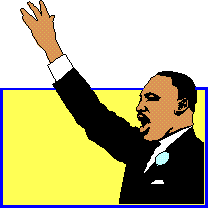By Tim Wise
To be fair to Mrs. Obama, for whom I have long had great respect, perhaps she meant to imply, in the "or more" section of her above statement, engaging in massive demonstrations against the illegal and immoral wars that continue under the leadership of her husband-–something King would likely do were he still here-–or protesting the substantial housing, job or criminal-justice system discrimination, which evidence indicates still plague people of color, but about which the president speaks little, for fear of offending white folks.
But if so-–if radical social action is still part of how we can or should carry on King's legacy-–one would never know it from listening to Michelle Obama, or pretty much any modern political leader for that matter.
Amid the ubiquitous insistence-–now quickly approaching the level of cliche-–that the King holiday should be a "day on, not a day off," community after community herds its youth, especially, into utterly depoliticized, ideologically neutered service projects that are guaranteed to produce a warm-fuzzy feeling, but do little to even raise larger issues of justice and injustice, let alone seek to ameliorate the latter in the name of the former.
Operating on a charity model, rather than one of solidarity with the marginalized and oppressed, these service projects, while perhaps worthwhile in and of themselves, serve to reinforce the illusion that the society is basically a just one, requiring no substantial transformation, but rather, just a little more "helping out," in order to attain perfection.
To believe such a myth is one's prerogative of course: yours or Michelle Obama's. But such a faith is far afield from that which Dr. King was suggesting during his life and at the time of his death. And it is likely just as far from that which he would be saying had he not long ago been taken from us.
Thus, to honor Dr. King with such a watered-down agenda is not to honor him at all. It is to dishonor the true Dr. King and the movement of which he was a part, and to allow his legacy to become so devoid of transformative potential that its hijacking by conservatives-–the very people who stood so resolutely against him during his life–-will only become easier in years to come.
Honoring Dr. King requires action, and not just any kind of action, but action aimed at producing a new way of living.
It is one thing, after all, to build houses for homeless people, but quite another to demand an end to housing shortages in a nation as wealthy as this one. It is one thing to feed the hungry, but quite another to demand that food security be guaranteed as a matter of public policy and not just hoped for as the result of private charity. It is one thing, in short, to honor the safe Martin Luther King Jr., and another to honor the man in his entirety.
Forty-three years later, it isn't only conservatives who fail to recognize the difference. Perhaps Michelle Obama has to play the game this way for political reasons. But for the rest of us, there is no similar excuse.
For more on the problems with Western civilization, see America's Cult of Self and Columbus the Cannibal. For more on the Native alternative, see What a Native Utopia Looks Like and Indians Inspired More's Utopia.


No comments:
Post a Comment